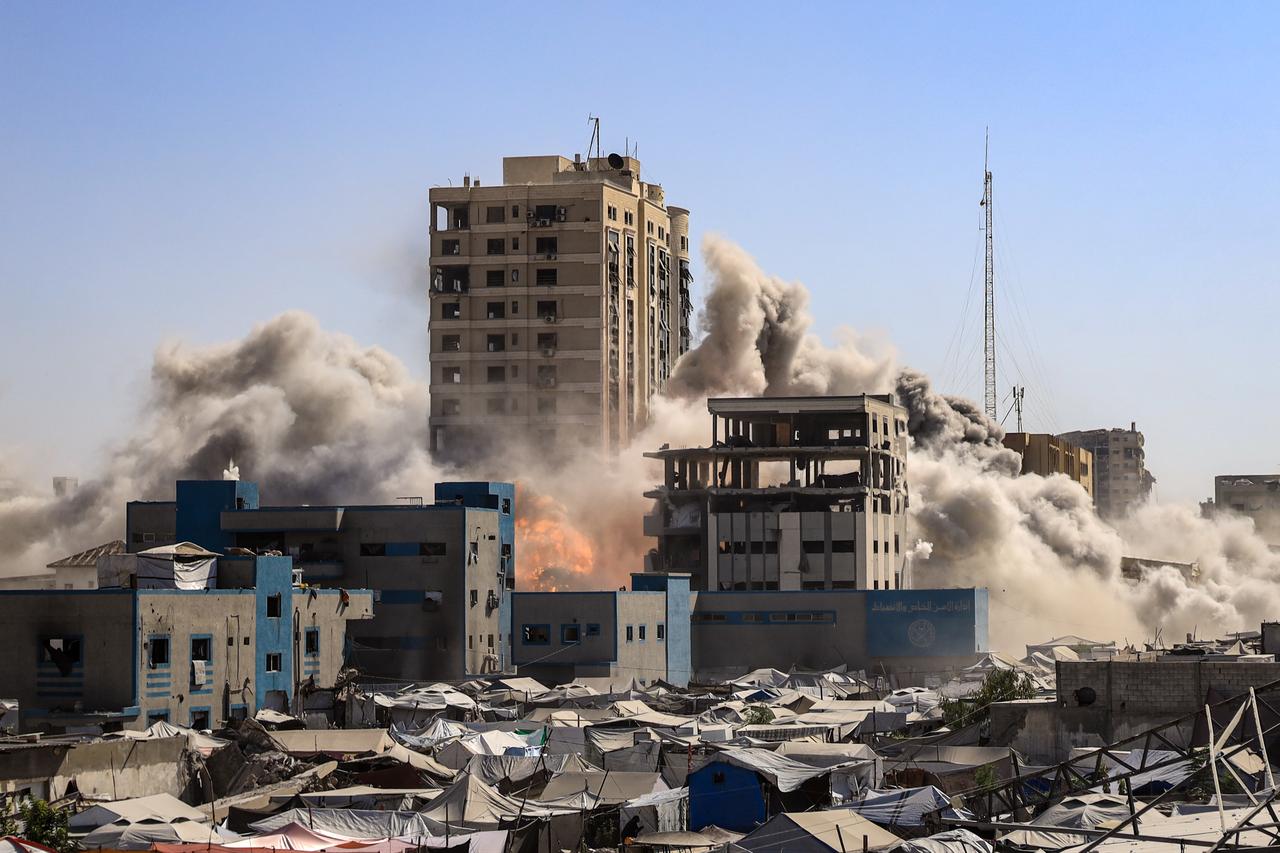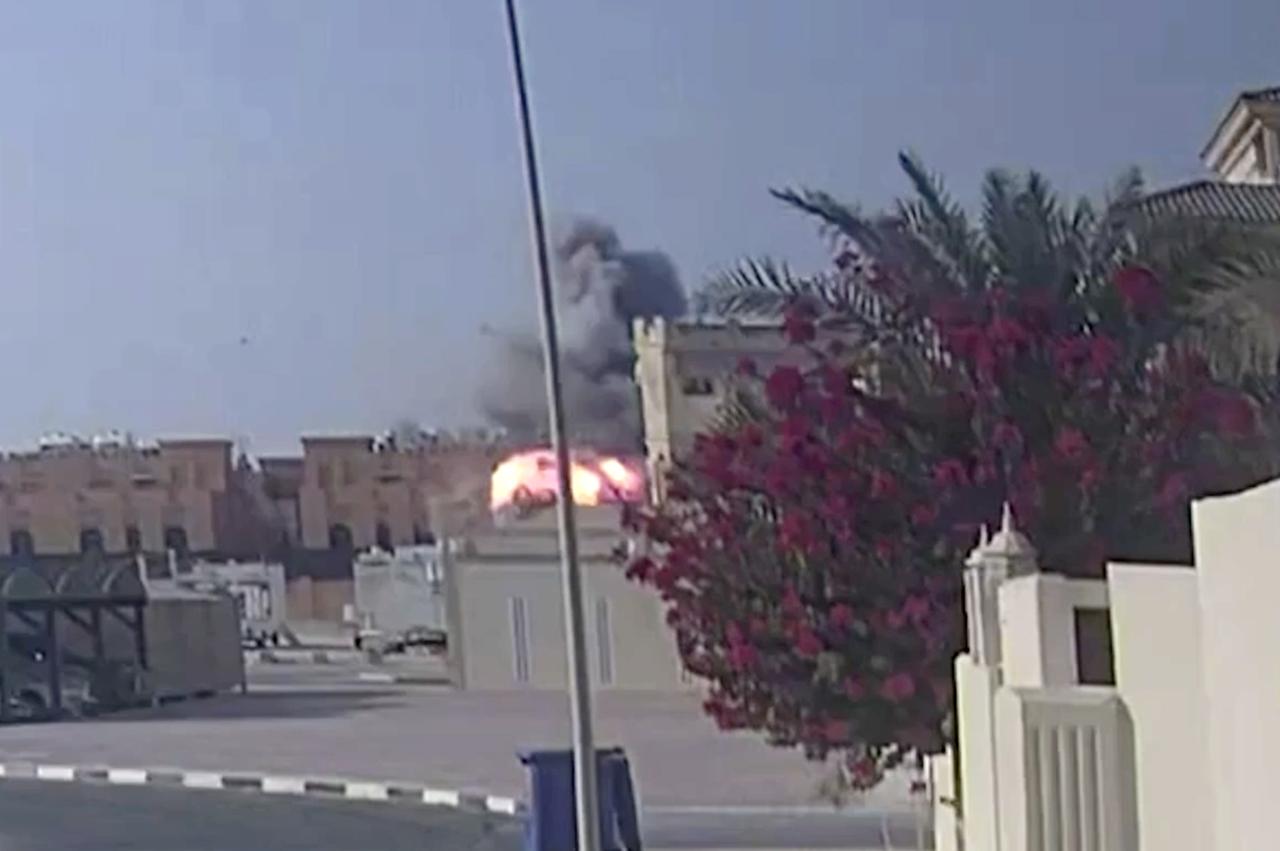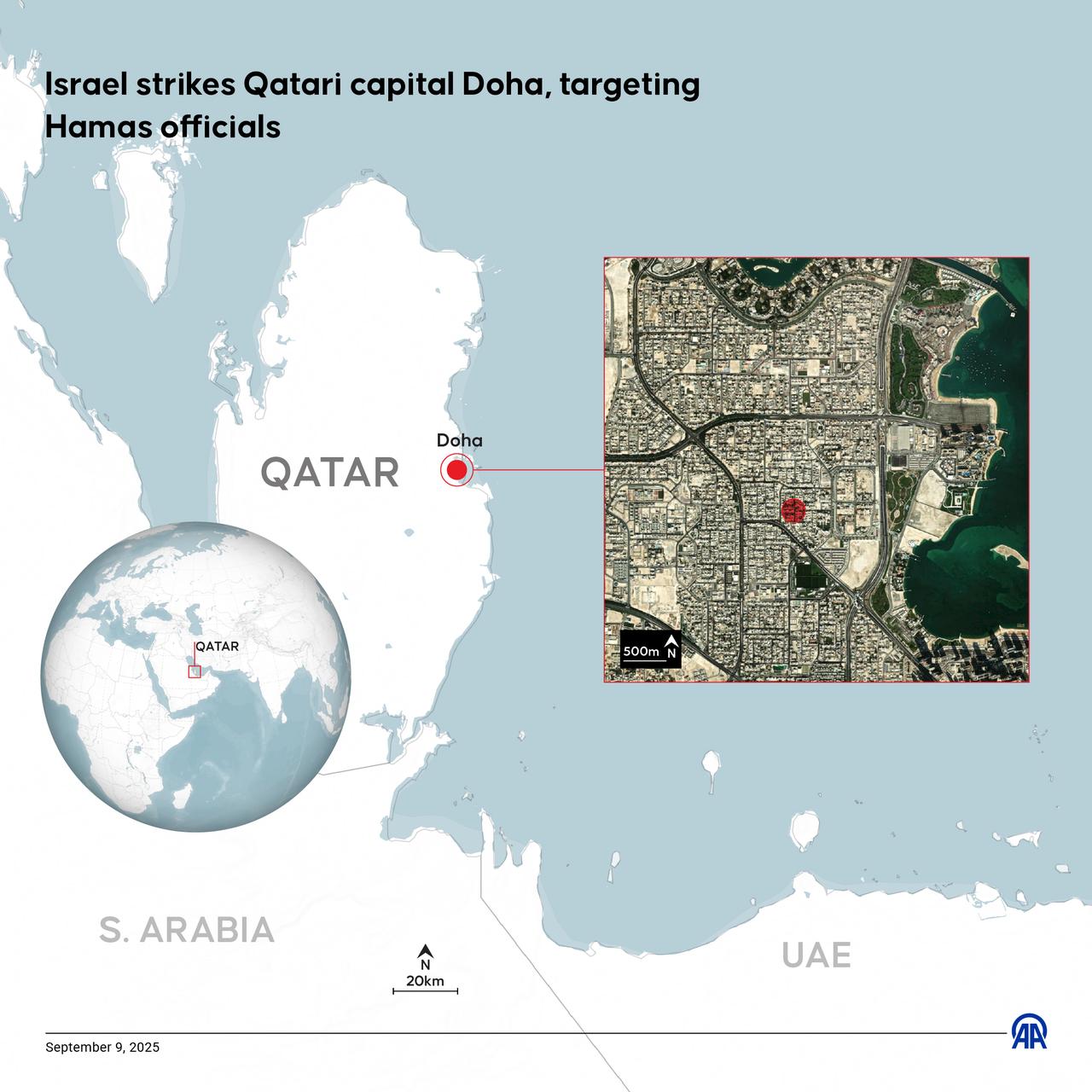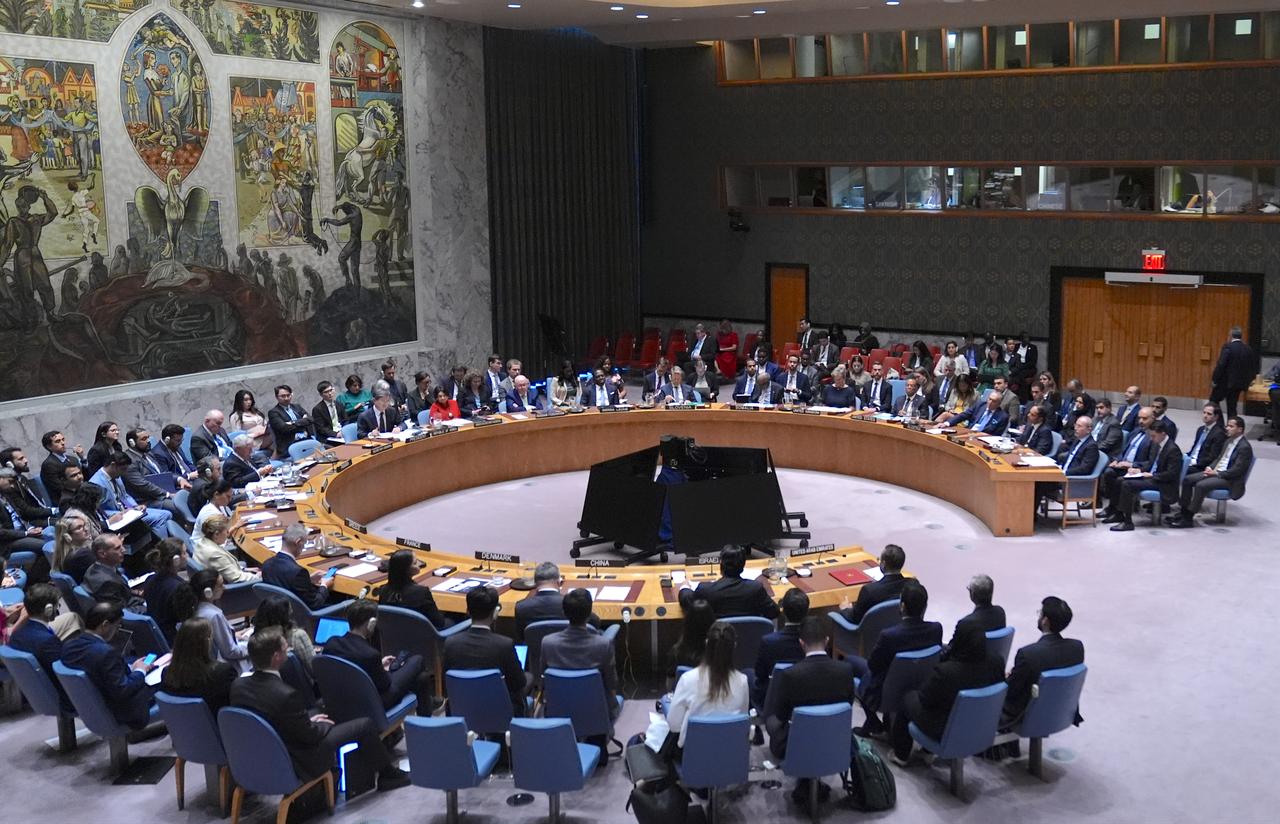
Analysts say Israel’s recent airstrike in Doha targeting Hamas leaders carried a broader strategic message for Qatar, the Middle East and the Islamic world, putting “regional security” at the forefront ahead of an emergency Arab-Islamic summit.
The Organisation of Islamic Cooperation (OIC)–Arab League Extraordinary Joint Summit will convene in Doha on Sept. 15 to formulate a collective response to the attack, which killed five Hamas members and a Qatari security officer but failed to eliminate Hamas’ acting leader, Khalil al-Hayya.

Dr. Lika Mekki, senior researcher at the Al Jazeera Center for Strategic Studies, told Turkish news agency Anadolu that the attack marked a turning point.
“Israel has now begun targeting not only Palestine but also the security of the Islamic and Arab world directly with its attacks,” Mekki said. “This attack is an indication of a new strategy aimed at destabilizing the region.”
Mekki stressed the importance of Türkiye’s role at the summit. “Türkiye’s participation is critical. Because Türkiye is in a position to ensure that the decisions taken are effective and influential. The outcomes of the summit should not be limited to statements of condemnation. Practical steps must now be taken to deter Israel.”
She also pointed to Qatar’s reliance on Washington. “Qatar has deep cooperation with the U.S. in political, economic, and security areas. However, the latest attack showed that the U.S. military presence alone is not sufficient for Qatar’s security."
"Even U.S. backing can put the Gulf’s security at risk," she said, urging Doha to diversify its security ties. “In this context, Türkiye stands as the strongest alternative for Qatar’s security.”

Dr. Wadah Khanfar, president of Al Sharq Forum, said Israel’s decision to strike in Doha carried a message beyond Qatar.
“Israel’s attack on Doha is the first in the Gulf region. The fact that this attack could be carried out now raises the possibility that Israel could easily target the entire Arab world,” he said. “This attack shows that Israel has adopted a new strategy.”
Khanfar said regional publics expect more than rhetoric.
“The people of the region expect not just strong statements and condemnations but real actions that can actually stop Israel. Decisions such as closing airspace and sea routes to Israel or opening humanitarian aid corridors must be made.”

He added that support for initiatives like the Global Sumud Flotilla, which seeks to deliver aid to Gaza, would demonstrate tangible action.
Khanfar also argued that the attack reflected Prime Minister Benjamin Netanyahu’s lack of sincerity in the ceasefire talks.
“Israel’s ultimate goal is to completely expel Palestinians from Gaza and implement a similar purge plan in the West Bank. This attack … could turn into an opportunity for Gaza to be saved from genocide and for Palestine to live in peace, if the summit produces applicable decisions that block Israel.”
Jabir al-Harami, editor-in-chief of the Qatar-based newspaper Al Sharq, said there is “unprecedented solidarity” across the Arab and Islamic world.
“The outcomes of the summit must be very different from the past,” he said.
“We expect not only solidarity with Qatar but also steps to be taken to stop Israel’s reckless attacks.”
Al-Harami emphasized that condemnation alone is insufficient. “The decisions must include concrete actions to deter Israel,” he said.
Experts agree the summit’s outcome will be pivotal.
Khanfar described the decisions as “of historic and vital importance,” warning that Israel’s strike targeted not only Hamas negotiators but also “the security order of the Gulf states.”